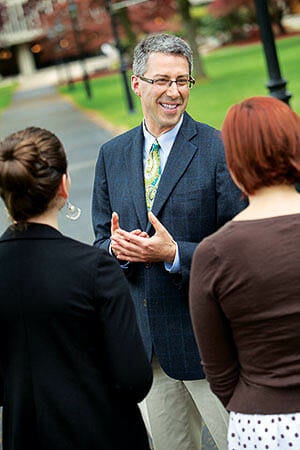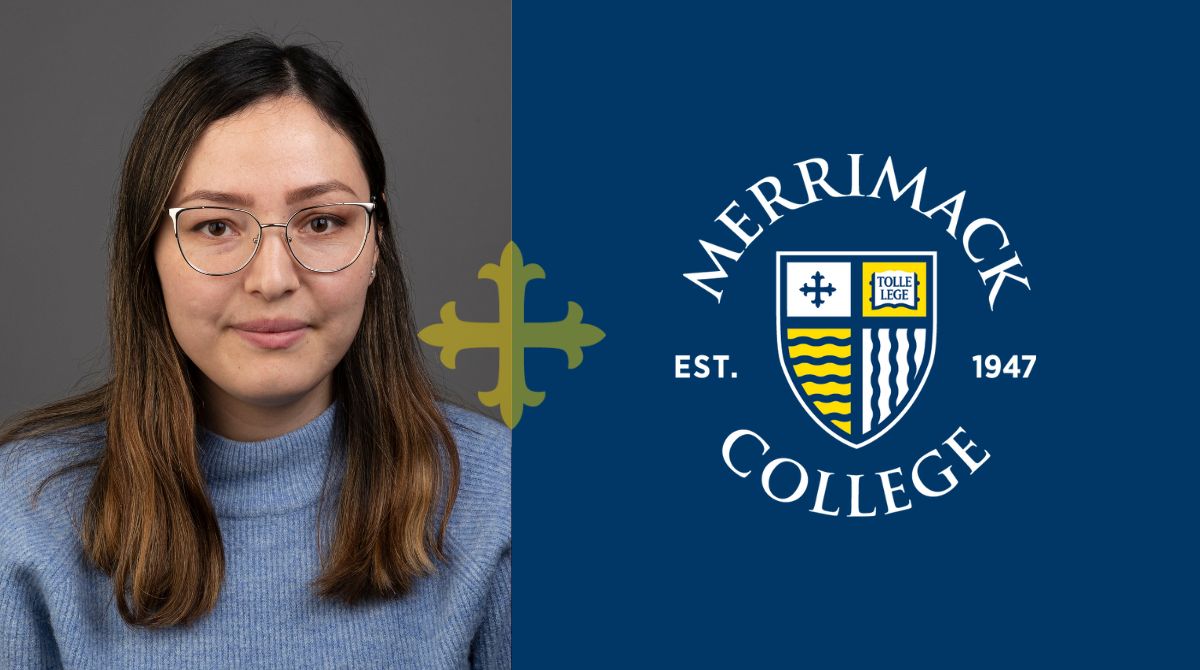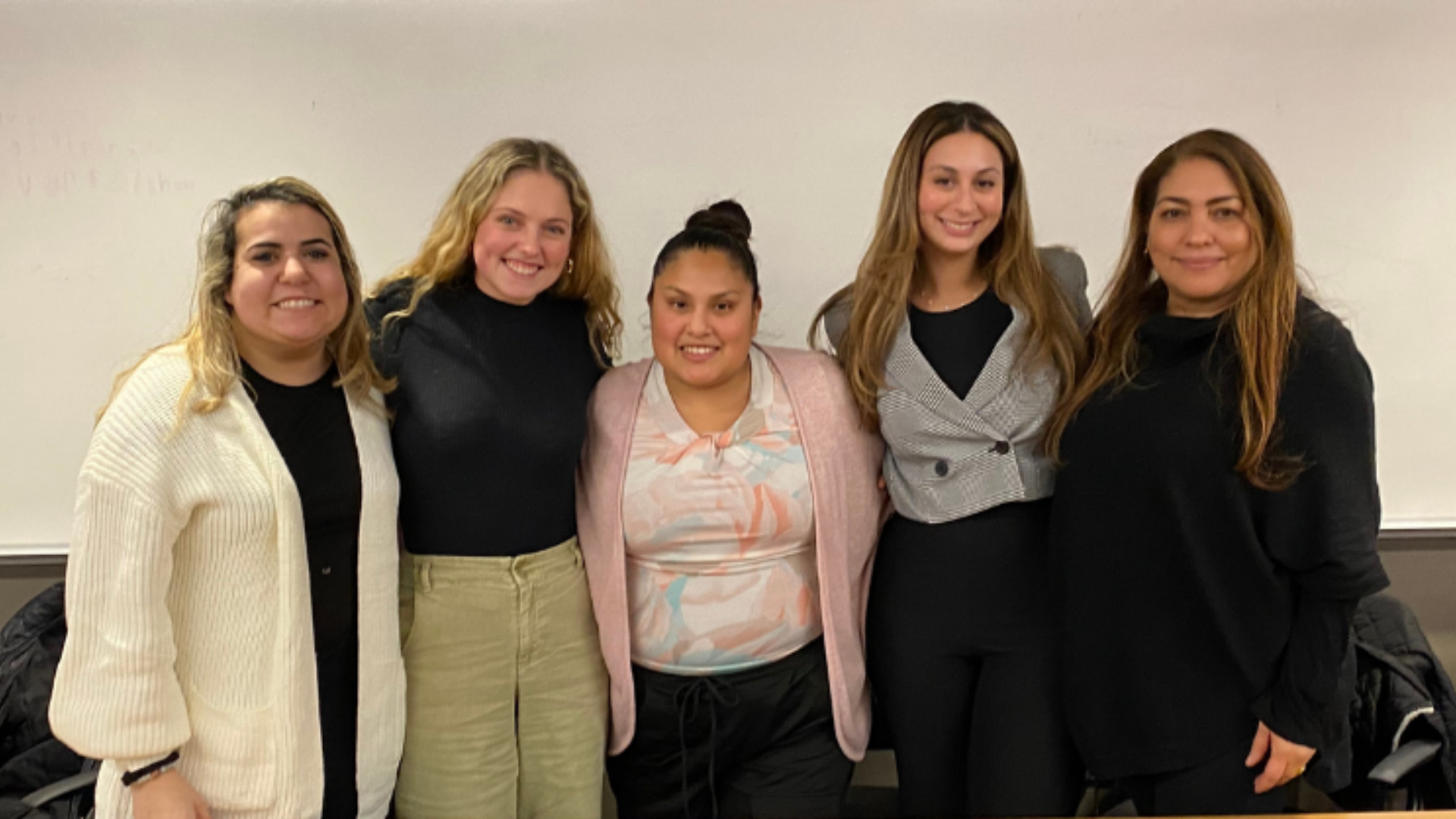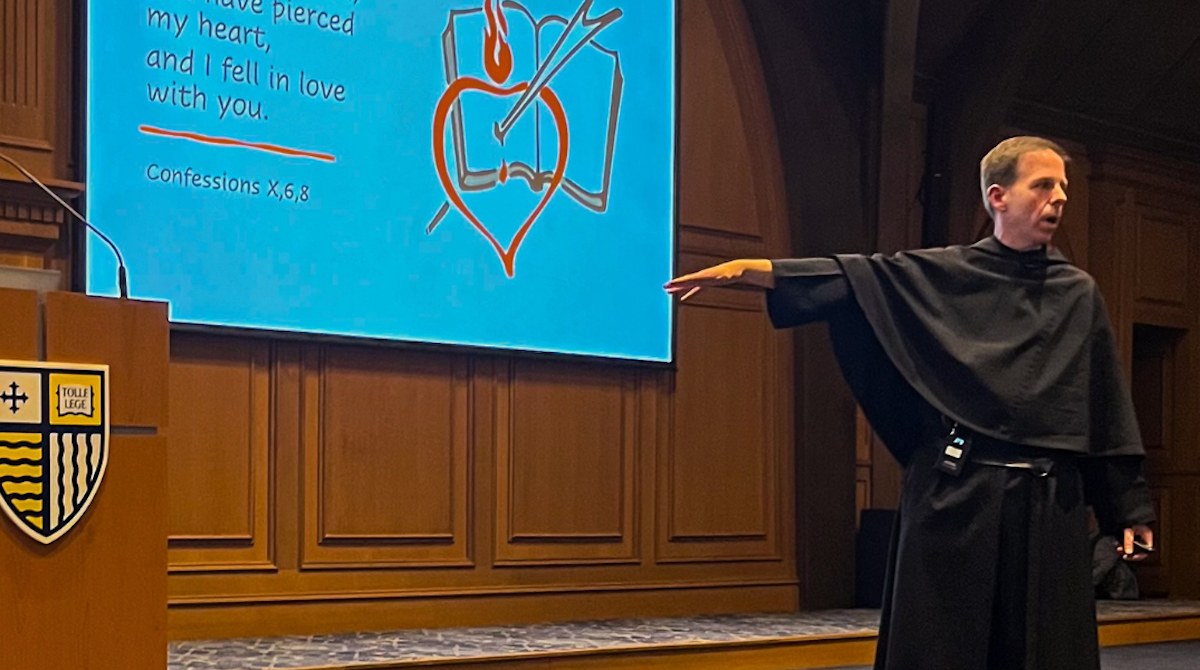Three tenets—deep learning, bringing theory to life, and making a difference—shape the School’s approach, both in and out of the classroom, to preparing leaders who understand the crucial role of education in fostering a diverse and democratic society.
Whether at the graduate or undergraduate level, Merrimack’s School of Education offers multiple opportunities for students to connect theory, research, and practice. Dan W. Butin,Ph.D., Associate Professor and Founding Dean of the School of Education, explains the School’s guiding philosophy,“Our dynamic and responsive programs connect education with communities—cultivating intellectual leaders who are grounded in integrity and devoted to the betterment of the public good.”
Making huge strides in a few short years
Since its founding four years ago, the School of Education has established a reputation for innovation and attracted an ever-increasing number of applicants from the region and around the country.
At the undergraduate level, the School of Education has developed programs in Education, Human Development, and STEM (science, technology, engineering, and mathematics) Education. As testament to the School’s growing popularity, Human Development is currently the third-largest major at Merrimack.
The School has also recently launched a Bachelor’s DegreeCompletion Program in Child, Family, and CommunityStudies. With looming legislation that requires childcare providers to have a Bachelor’s degree, this structured, cohort-based program allows students with an Associate’s degree to earn a Bachelor’s degree in two years. The program’s success has been astonishing, with four cohorts of approximately15 students currently running. In addition, the School’s graduate programs continue to flourish.
In the 2012–2013 school year, more than 200 graduate students pursued a Master of Education (M.Ed.) in TeacherEducation, Higher Education, or Community Engagement.Ninety of these students were in the School of Education’s graduate Fellowship programs. Highly selective programs, they provide full-tuition fellowships that are supported by year-long,site-based clinical residencies—allowing students to earn their degree in just one year.
Bringing theory to life while making a difference
“Hands-on experience is a hallmark of our programs, offering our students ways to integrate and enhance their theory-based courses,” says Dr. Butin. “But in order to have a robust, on-site program, partnerships are key. We are so lucky and thankful to have incredible partners with regional nonprofits, area schools,and school systems.
”Field experiences can be seen across all of the School of Education programs. For example, all undergraduates begin with site visits, volunteer work, and service-learning in their first years and expand the number of hours and responsibilities as they progress through their programs. The culminating experience for all future teachers is the semester-long student teaching experience, the practicum. During the practicum,students synthesize and develop their education philosophy,create a portfolio, and establish meaningful professional relationships with their students, cooperating teachers,and colleagues.
Merrimack offers other fun ways for students to participate in the field. For instance, the Education Club recently conducted a “Reach Out and Read” event at the Shawsheen Elementary School in Andover, Massachusetts. Undergraduate students read Dr. Seuss classics to 180 kindergarten through second grade students and led a fun, interactive activity to wrap up the event.
Additionally, graduate Fellowship students participate in intensive, on-site residencies for nine months or more, focusing on areas of Education, Community Engagement, and Higher Education. Education Fellows acquire teaching experience in surrounding public and parochial schools. To prepare for administrative leadership in colleges and universities,Higher Education Fellows work at four-year and two-year institutions as well as organizations including MassachusettsCampus Compact (MACC), a nonprofit coalition of college and university presidents committed to developing civic involvement. Community Engagement Fellows train to become nonprofit leaders, social change activists, and shapers of the national service learning movement through experience at local and national organizations including the GreaterLawrence Community Partnerships for Children and Habitat for Humanity.
Dr. Butin comments on the impact of Fellows’ community involvement, “Our Fellowship programs have really taken off and are gaining national recognition. They are incredibly powerful because they allow students to link theory with action and classroom learning with real-world experience.”
|
Between semester -long undergraduate practicums and fellows’ on-site residencies, School of Education students acquire 460–1,200 hours of hands-on experience by the time they graduate. |
Creating positive change beyond Merrimack
In addition to helping students become leaders in the field of education, Merrimack also organizes programs for accomplished education leaders, both in the community and around the country. The School’s Leadership Think Tanks bring together leaders from regional school districts to collaborate on educational innovation and problem solving.Each Think Tank is co-led by a School of Education faculty member and an expert practitioner from within the group.Through these dynamic working sessions—held seven to eight times per year on Merrimack’s campus—educators explore contemporary topics including “Connected Learning and Social Media” and “Addressing Student Anxiety:Causes, Manifestations, and Interventions.”
The School of Education also houses the Center for Engaged Democracy, a central hub for developing, coordinating, and furthering the adoption of academic programs focused on community engagement. To rally support, the Center organizes an array of research, advocacy, and learning opportunities.This incubator for civic engagement was recently recognized by the U.S. Department of Education for its role in promoting a civic-minded campus.
5946400432
|




